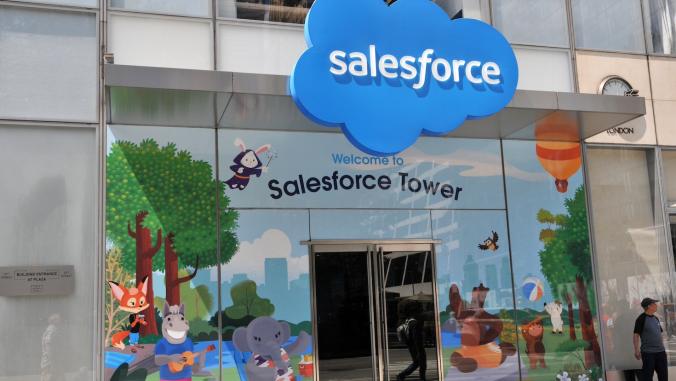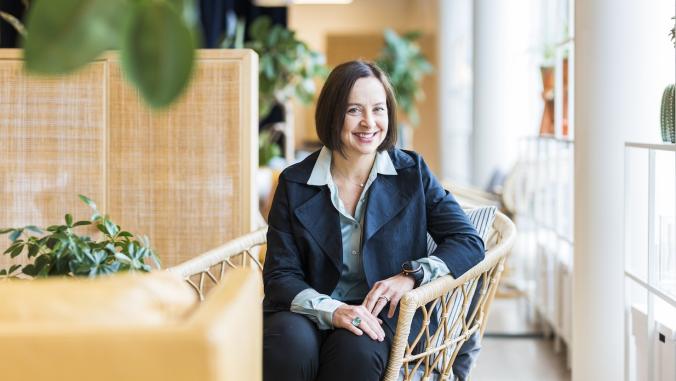How Conservation International helps businesses look ahead
The NGO’s top executive, Peter Seligmann, seeks tenacious corporate partners that have demonstrated they are flexible and trustworthy.

Conservation International co-founder and CEO Peter Seligmann has no patience for corporate “pirates,” business leaders who parrot someone else’s strategy without putting real action behind their words. He scrutinizes motives carefully.
“There are certain companies that really don’t care. Those companies we avoid,” Seligmann told GreenBiz after a recent trip to Indonesia, where he was consulting with government officials about palm oil production. “It’s a waste of time. We are overwhelmed with the number of companies that want to participate and collaborate with us. That’s good, but we have to be selective.”
The good news is more companies are passing muster than when the NGO was created in 1987 by Seligmann, an ex-Nature Conservancy staffer, and Spencer Beebe, who went on to create Ecotrust. Close to 50 multinational organizations officially are listed on Conservation International’s official roster, ranging from Brazilian palm oil producer Agropalma to the enormous retailer Walmart.
“There are extraordinary individuals inside of companies willing to do what they believe is the right thing,” he said.
Technically speaking, Seligmann’s vision is for an “environmentally healthy world that will provide economic opportunities and security for all people.” Getting there, however, requires the cooperation of both communities and companies, and a whole lot of tenacity.
“There’s an important intersection happening between securing natural capital and really transforming the ways nations and communities and businesses engage with the conservation of nature,” he said.
The company’s 15-year-long relationship with coffee company Starbucks, which recently reached a significant milestone, offers a typical illustration. By the end of 2015, the company says, 99 percent of the beans it procures will come from sources vetted for ethical and sustainable agricultural practices. To do this required reaching and retraining millions of small-holder farmers, even as Starbucks’ production needs grew.
“Consider that the amount of coffee that they used when they started was much less than what they use today,” Seligmann noted. “The challenge is fairly complicated.”
Now, the two organizations seek to share their learnings with other companies with heavy coffee sourcing needs, and apply some of what’s working to other commodities such as palm oil sourcing that can have a devastating impact on biodiversity and natural habitats. During his recent trip to Indonesia, for example, Seligmann spent time advocating sustainable ways of using land that already has been degraded and deforested. “Partnerships really take a willingness to do an objective analysis of the progress you’re making, and the unanticipated challenges you’re running into. You must have the flexibility to adapt,” he said.
Walmart is another active, and extremely influential, partner. One current project involves ensuring that the retail channel uses sustainably produced palm oil for all white-label products by the end of 2015. Right now, the percentage is slightly more than half, but the initiative is on schedule, he said. “If you can get a company like Walmart right, it has a massive ripple effect,” Seligmann said.
Two Walmart board members, Rob Walton and Michael Duke, are on the executive council for the NGO’s Center for Environmental Leadership in Business, which exists to help share business practices gleaned from Conservation International’s work in progress. Top executives from Starwood Hotels, the Coca-Cola Co. and Woolworth Holdings also participate.
In coming months, you’ll see Conservational International foster far closer relationships with the mining sector, building on the five-year alliance it struck in 2011 with one of the biggest companies in this segment, BHP Billiton. The specific focus is conservation projects in Australia and Chile (PDF), meant to offset the negative impacts of extraction. It’s worth noting, however, that the two have been allied for at least a decaded.
The NGO’s team is also working with steel company ArcelorMittal in Liberia, in the Nimba Mountain range, to help ensure that “local communities share the economic benefits of mining activities and are also empowered to protect the natural resources they rely on.” So far, the relationship has touched 15,000 people.
Two companies from mining that call Conservation International partner: Alcoa Foundation and Cerrejon Coal.
To skeptics who question the motives of these corporate partners, Seligmann counters that it’s in everyone’s interest for NGOs such as Conservation International to share their research knowledge and scientific resources with businesses that are open to change and who are looking for insight to help “see around the corner.”
He said: “We’re ready to work with any industry that has gotten to the point that it is in their self-interest to do things the right way.”





